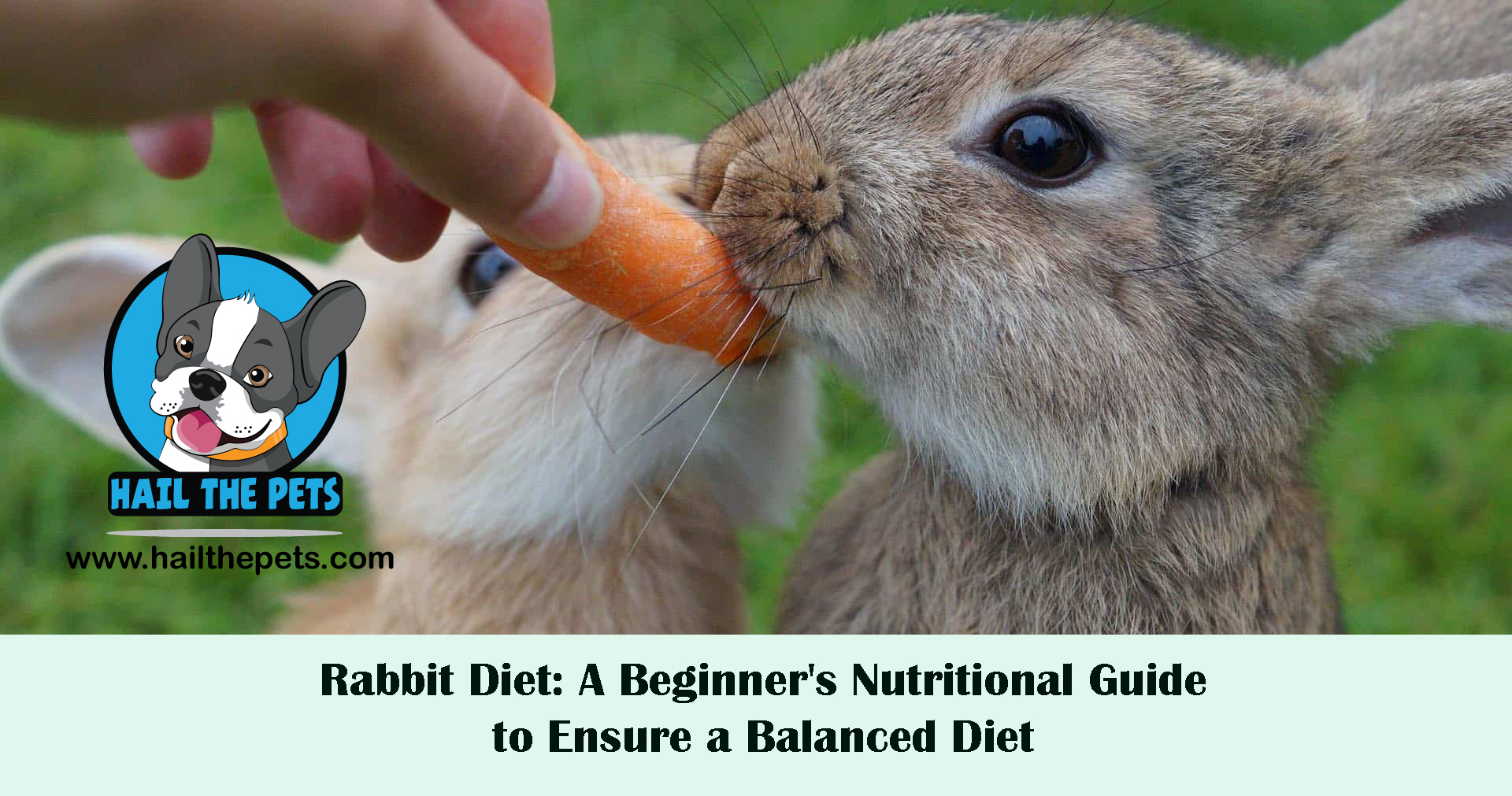Adopting a pet bunny, and thinking about giving your best to take care of it? Well! These little furry creatures are really demanding and selective in terms of choosing their food. These little herbivores, have some specialized eating habits and digestive system, which demand selective feeding and caring choices.
The essential rabbit food items contain hay, small quantity of vegetables and fruits, and pellets. However, the quantity and need for the specific food item depends on the age of the rabbits.
Read More: Chewing toys for rabbits
Unlike wild rabbits, the diet of pet bunnies differs, as they rely on what we feed them. So, we need to be much careful while feeding our furry friends. In this article, we will explore rabbit food and right tricks to ensure that your pet is getting adequate amount of nutrients for overall growth and development.
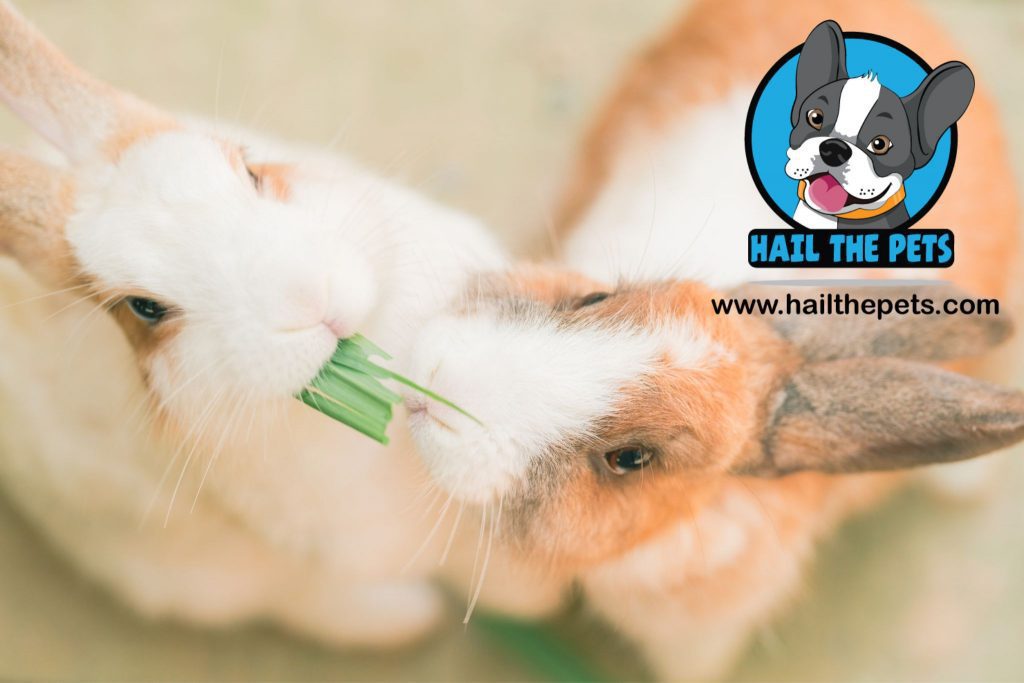
Guidance about Rabbit Diet
Rabbits eat a variety of foods to satisfy their nutritional needs, including greens, hay, and other food items. While taking care of them, you need to emphasize their diet rich in important proteins, vitamins, minerals, and carbohydrates, which their body needs.
Read More: Types of Rabbit Breeds: Decoding their Sizes, Coats and Personality Traits- July 2023
Essential Rabbit Diet Requirements
Pellets for Rabbits
Pellets are usually made up of quality plants, wheat, and necessary ingredients that a rabbit’s body needs. These are mostly added to the balanced diet of baby or younger bunnies, as pellets are a source of rich nutrients.
Baby rabbits need to be fed food rich in calcium and proteins, and quality pellets provide them with the necessary calcium and proteins for their strong bones and healthy growth.
Pellets play an important role in keeping rabbits’ regular healthy weight. Feeding pellets-rich food to underweight young rabbits can help them gain good weight. However, in mature or older rabbits, pellets don’t need to be added to their regular diet.
Moreover, it must be given carefully to the rabbits, considering how much quantity they need. Such as for overweight bunnies and also for older rabbits, pellets can cause obesity and illness.
So, it must be given in small quantity, only when needed. Research shows feeding the rabbits with hay and other fresh ingredients is better than keeping them on pellet feed.
Read More: DIY Rabbit Toys: How to Engage in Fun and Enriching Activities with Your Bunny – September 2023
Fresh Water
No one can ever doubt the importance of fresh water for all living beings. But somehow, we neglect the importance of the word ‘fresh’, when it comes to feeding the animals or pets. However, this negligence can cost much to our little pets.
Within the important rabbit food list, fresh water is an essential one. Fresh water must be available for the rabbits all the time, to keep them hydrated and healthy. Their water container must be clean and tidy and contain fresh water in it 24/7.
Ensure that rabbits must be provided with fresh and clean water once or twice a day. This water should be the same one that humans can drink, too. Moreover, their water containers must be sanitized and cleaned regularly.
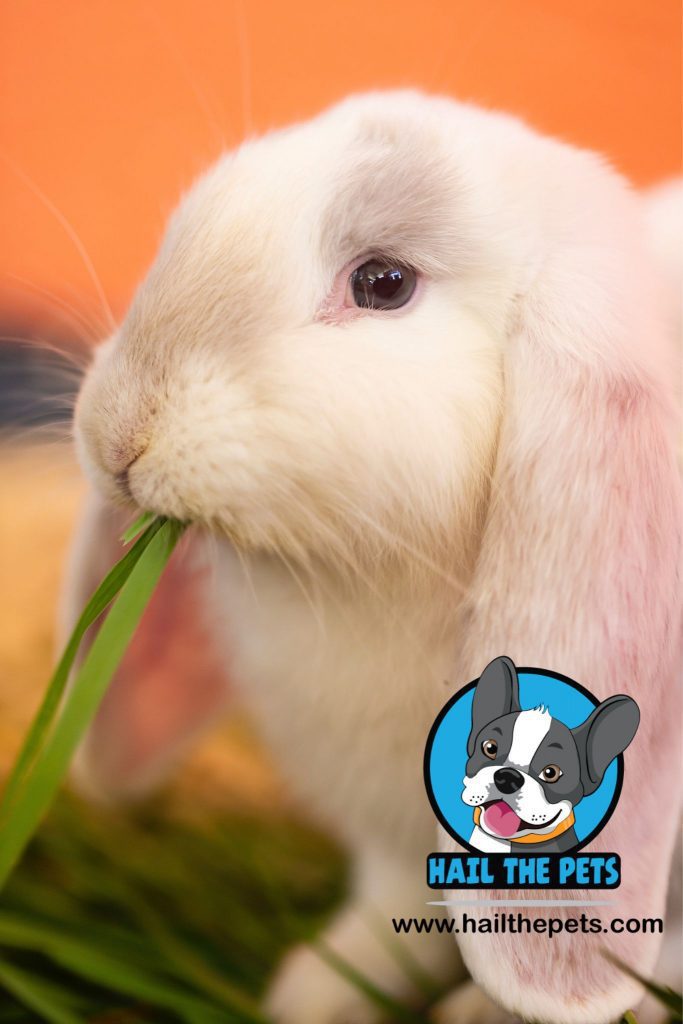
Fresh Vegetables (Rabbits favorite food)
Despite being difficult to eat by newborns, vegetables are among the favorite foods for younger and mature rabbits. Vegetables can be fed to the little bunnies from the fourth month onward.
Vegetables are rich in nutrients and can be added to the rabbit diet to make them happy. Care is necessary while offering them different vegetables, as only some will suit them. Offer them vegetables in small quantities and keep a check if they like them or not.
Read More: Common Health Issues in Cats: Symptoms, Risks and Preventive Care – September 2023
You can add two to three kinds of vegetables to their diet. Some common ones include green leafy vegetables, such as carrots tops, broccoli, beet greens, basil, and lettuce.
Similarly, the following vegetables can be added to their diet only if they do not cause any medical illness such as diarrhea or indigestion: spinach, endive, parsley, mustard green and pea pods, etc.
Vegetables and foods such as potatoes, mushrooms, iceberg lettuce, kidney beans, lilies, and corn can poison your pet rabbits or cause severe medical conditions.
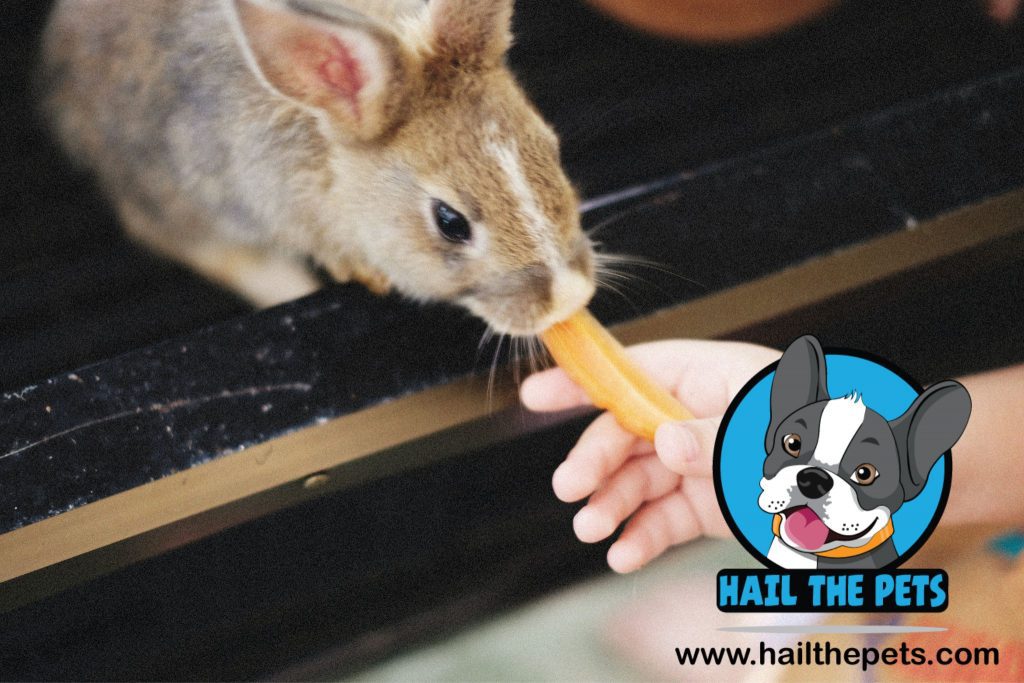
Fruits: Small Quantity
Having a very sensitive digestive system, any food introduced to rabbits can cause problems if not added gradually. Similarly, in terms of introducing vegetables or fruits to the rabbit diet, the process must be gradual, so that their digestive system may adjust easily.
Fruits are rich in nutrients but also rich in fibers. So, their intake in high quantities is never recommended. It can be given to the rabbits but up to 1 to 2 spoons daily, especially if they are high in fiber.
Moreover, it must not be given daily to the rabbits, as the sugar level in fruits can cause obesity and dental issues in rabbits. Giving it 2-3 days a week can be a healthy choice.
Fruits that are good for rabbits include apples, peaches, strawberries, raspberries, pineapples, bananas, and pears. However, apples, plums, and apricot seeds can poison the rabbits.
Hay: Most important element of Rabbit food
Among the food items to be offered to pet rabbits, hay is the most important, making up more than 80% of the rabbit diet. Among the hay varieties available, rabbits can be offered a mixture of different grass hays, including timothy, oat hay, cat grass, etc.
If your rabbit doesn’t like hay, rely on other food items, as in some cases, hay can lead to obesity and other health issues.
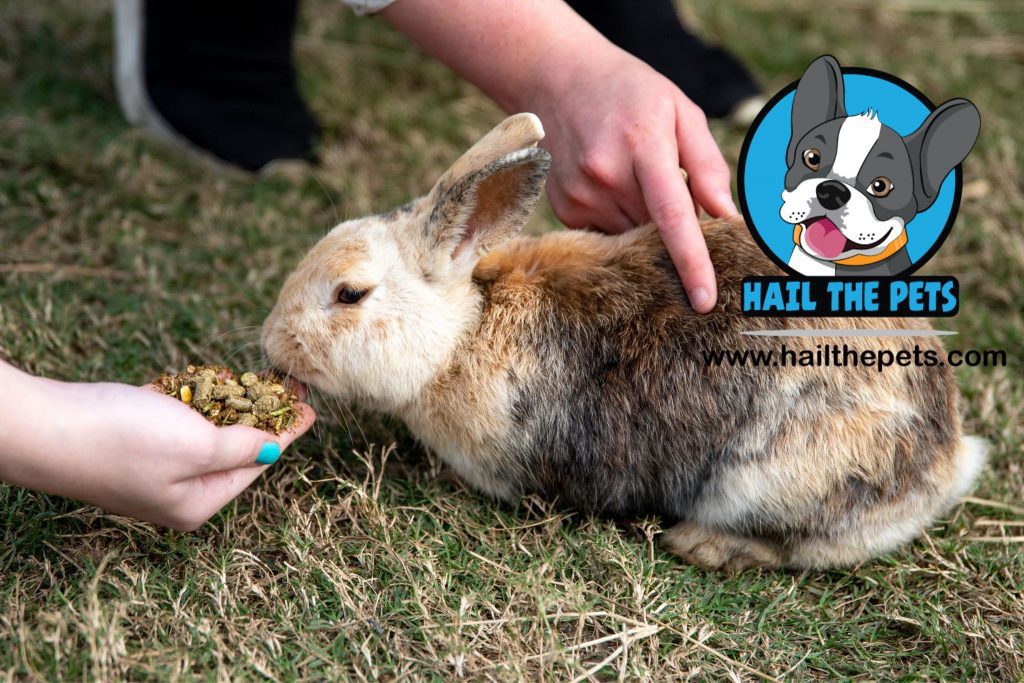
Foods to be Avoided in Rabbit Diet
Keeping your loving pets healthy requires much care and attention. While keeping oneself aware of what food items to give to your pet animal, it is also necessary to know what food to avoid.
Some foods can create serious problems for your pet bunnies and may require a veterinarian consultation. These items include chocolate, avocado, fruit seeds, dairy items, meat, sugar, cauliflower, iceberg lettuce, etc.
Read More: What Shouldn’t be fed to Rabbits
Feeding Rabbits According to their Age
Age factor always plays a vital role in making the right food choices. Like humans, animals also move from different stages of their lives, and their eating and living patterns change over time.
From birth till three weeks, baby rabbits rely on their mother’s milk feed, which acts as an antibiotic for the baby bunnies and helps them fight against the diseases.
From 3 months onward, the baby rabbits take small quantities of pellets and hay, which is called nibbling. Until 7-8 weeks, they rely on the feed of pellets and alfalfa hay, which helps them gain particular weight and move successfully towards maturity.
From 7 months onward, the young bunnies can be provided with additional diet items, including vegetables and a small quantity of fruits. At this stage, they don’t need pellets and alfalfa hay.
The rabbits can be provided unlimited hay at the maturity stage, while the pellet feed should be decreased. They don’t need much fiber and calcium at this stage, but their diet must include hay, vegetables, and sparingly feeding fruits as treats.
FAQs
What do bunnies like to eat?
Bunnies like to eat every kind of food that suits their digestive system and provides them with energy. Firstly, they love to eat and graze on hay, which they require throughout the day.
Secondly, green leafy vegetables and other vegetables can be added to their diet gradually. However, if any vegetable or food item does not suit them, it should immediately be stopped and removed from their diet.
Can bunnies eat bell pepper?
Yes! Bunnies can eat bell peppers. They can be offered different vegetables, but they must be fed with them sparingly. It must be at most 15% of their diet, which they regularly take. It can be added as a treat for them, not a high-proportioned food.
Can rabbits eat lettuce?
Yes! Rabbits can eat lettuce but in moderate quantities. It can cause issues in their digestive system. Also, they must not be offered iceberg lettuce, as it can poison them.
Can rabbits eat cucumber?
Yes! Like many other vegetables, bunnies can be given cucumbers. However, ensure that they are clean and free from pesticides. Also, add them gradually to their diet.
Can rabbits eat carrots?
The connection between rabbits and carrots is thought to be very strong, as we have seen bunnies with carrots even in cartoons since childhood. However, carrots are rich in sugar and must not be offered excessively to the bunnies.
Can rabbits eat beet greens?
Yes! Rabbits can eat beet greens or beetroot greens. However, these vegetables should only be offered to them sometimes, and that too in small quantities.
Can rabbits eat grapes?
Wash the green, white, or red grapes, and offer your pet rabbits to treat them. However, being rich in sugar, they should be offered occasionally in small quantities.
